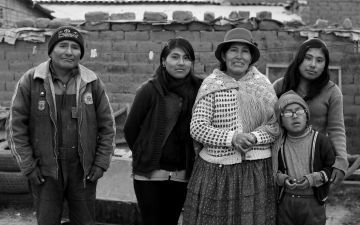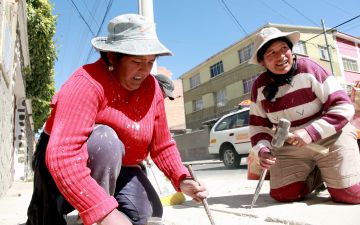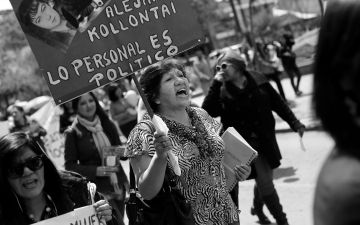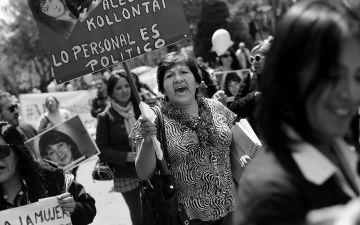The head of Bolivia's human rights office recently called violence against women and children in the Andean nation "a crisis of dimensions we scarcely comprehend."
According to surveys conducted over the past 12 years, more than half of Bolivian women have experienced physical or sexual violence at the hands of an intimate partner. It's an epidemic that made headlines in early 2013 following the high-profile murder of a journalist who was stabbed to death, allegedly by her police officer husband. On the heels of that case, Bolivia enacted a law that specifically recognizes femicide as a crime punishable by 30 years in prison.
But it's not just husbands, boyfriends and lovers who pose a threat to women's lives. In 2012, the murder of a politician prompted passage of a law that aims to control threats and violence against women in political and public roles, and a recent outbreak of highly publicized crimes against women across the country has once again put the issue of violence on the front page.
Despite those advances, justice for victims remains elusive. Many women give up in the face of a legal process that can be agonizingly slow and financially and geographically inaccessible. This series of stories explores the causes and effects of high levels of violence against women in Bolivia, how the criminal justice system often fails to protect victims or punish aggressors, and how violence against women is becoming an increasingly public issue in Bolivian society.





